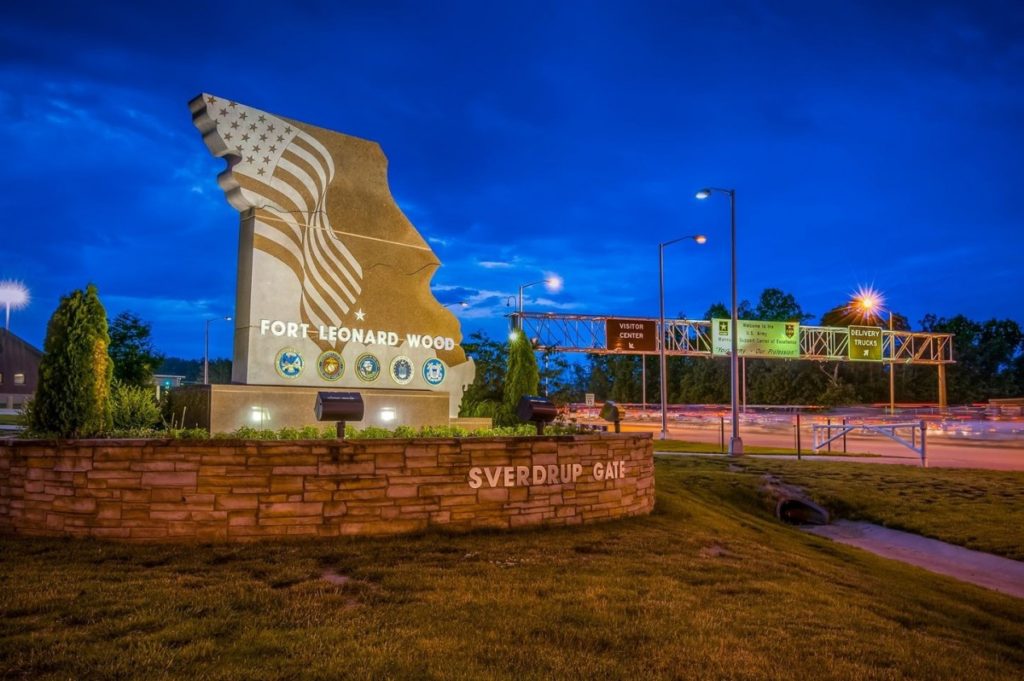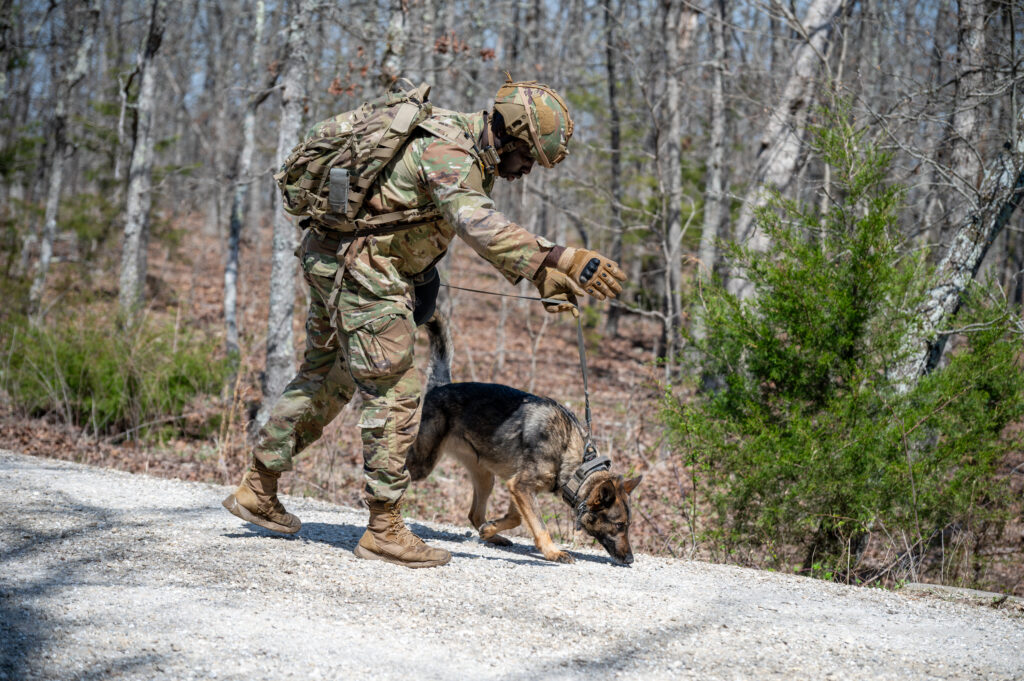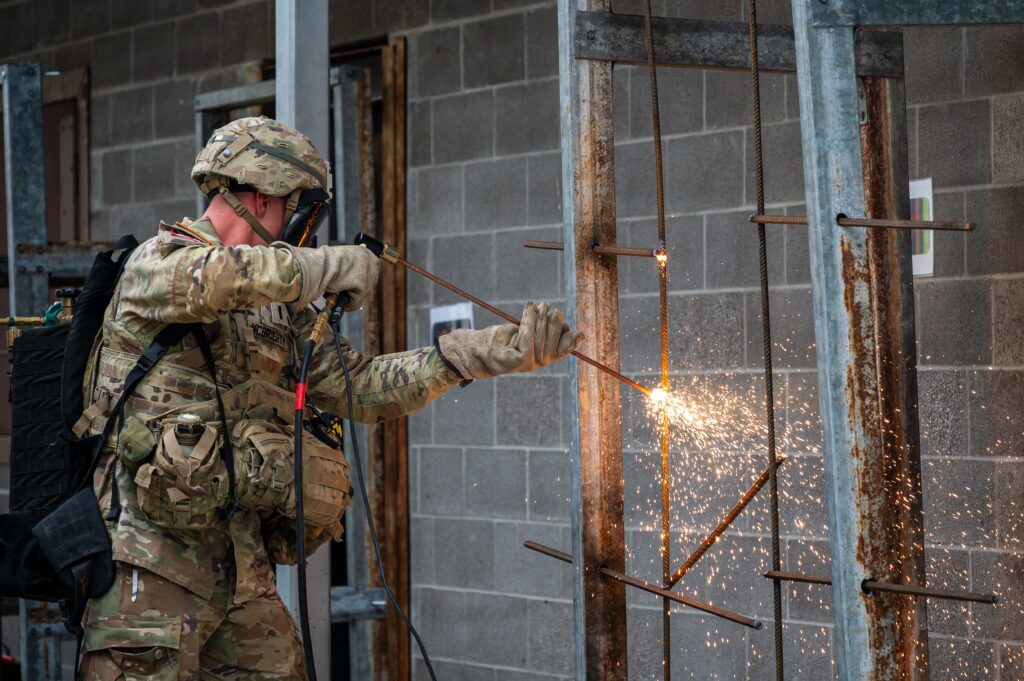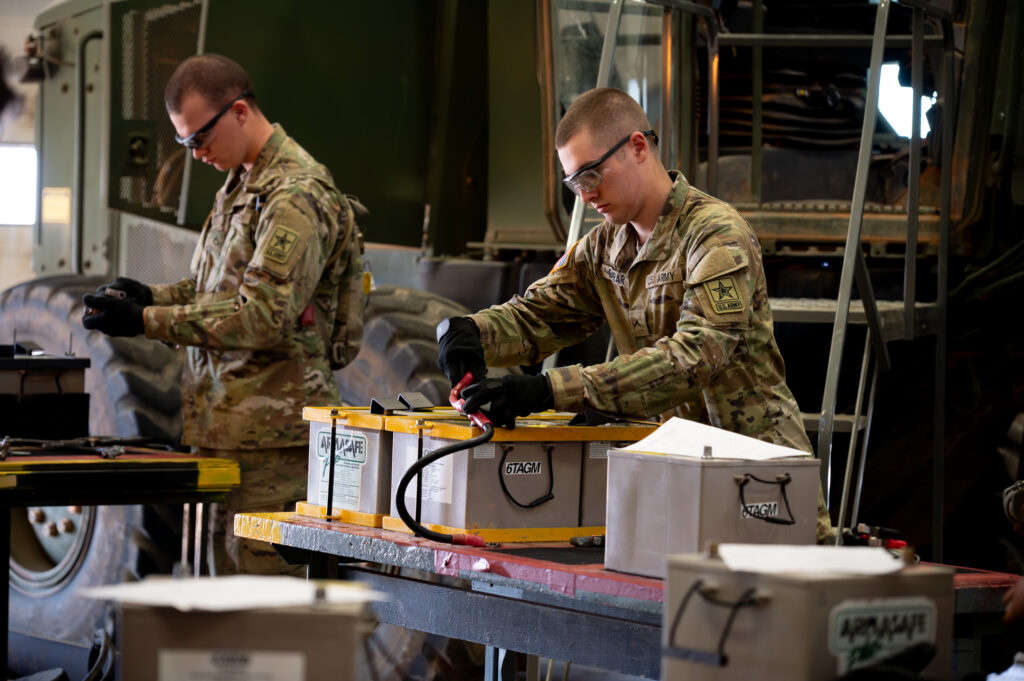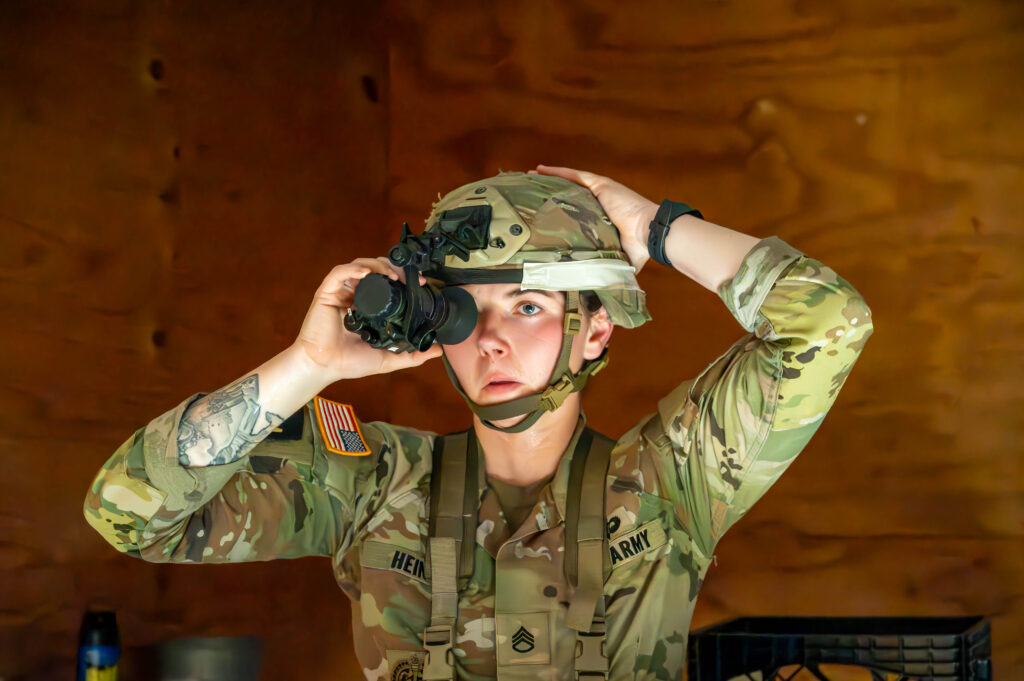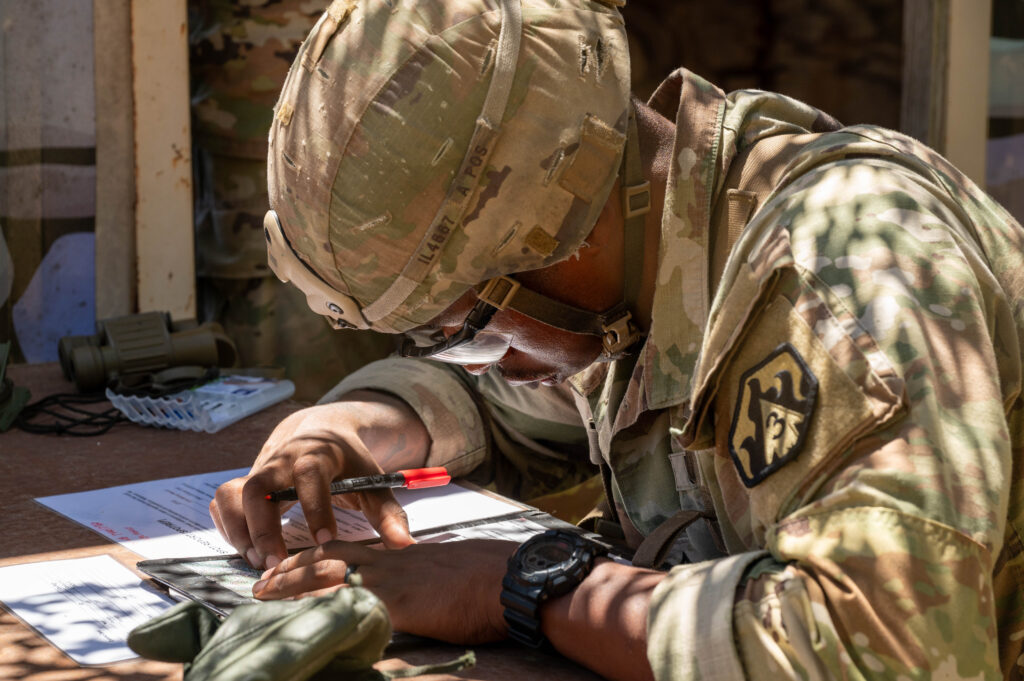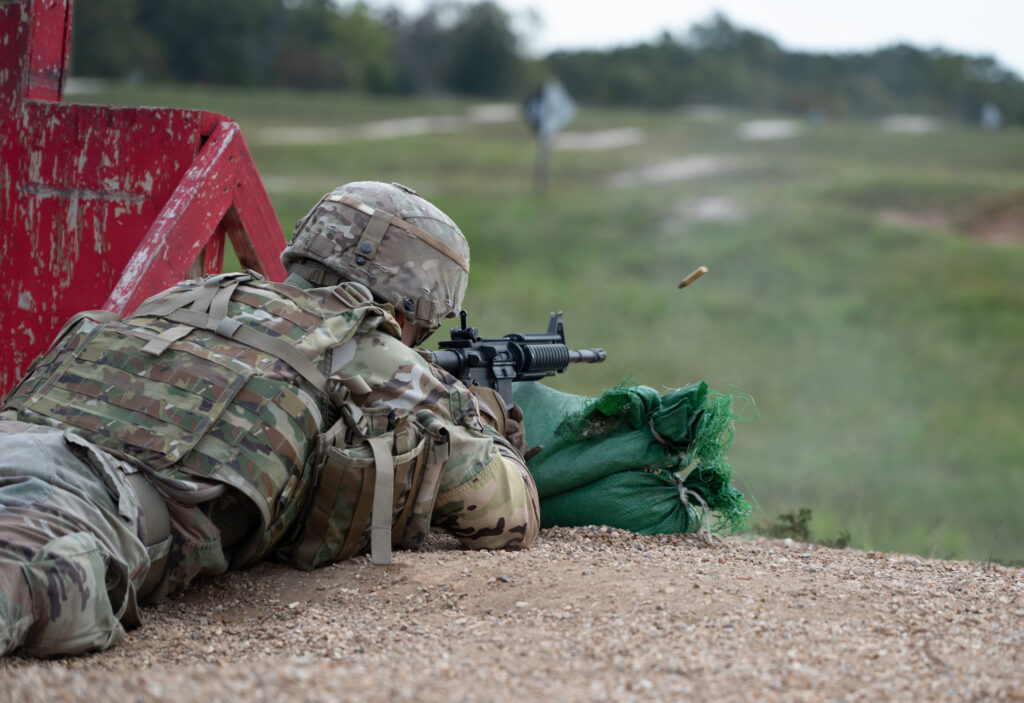Brian Hill
FORT LEONARD WOOD, Mo. (May 10, 2022) The Truman Education Center hosted a pinning ceremony for 21 new nurses May 3 at Lincoln Hall Auditorium.
The graduates, from Lincoln University — one of seven universities and colleges with a physical presence on Fort Leonard Wood — completed all course and lab work necessary to earn their undergraduate Associate of Applied Science degree. The group included Toryana Biggers, Andrea Birdsong, Hannah Booker, Sabrina Childress, Joyce Deku, Amanda Everhart, Ashlea Ford, Alida Fondjie, Javonda Kossuth, Morgan Lyons, Cassy Martin, Courtney Miessen, Jessica Millius, Amanda Parker, Ariane Radji, Ashlyn Saladino, Kelly Scarbrough, Jena Stevenson, Amanda Taylor, Kimberly Wild and Dalila Yeates.
The pinning ceremony — which is a separate event from the official university graduation commencement — is unique to the nursing field, and harkens back to the pioneering, mid-19th Century medical modernization work of Florence Nightingale, said Megan Titus, Lincoln University School of Nursing program coordinator.
“The nursing pin is a symbol of service and involves many professional rights and responsibilities,” she said. “It also represents honor and courage. Nurses honor the circle of life. We honor the miracle of birth and the process of death.”
Each school of nursing has a unique pin they present to their graduates, Titus added.
“The pin of the Lincoln University School of Nursing was originally designed for the departments’ first graduates in 1971,” she said. “The pin is composed of two concentric circles. The center of the inner circle contains a profile of Abraham Lincoln encircled by the words, ‘School of Nursing.’ The lower quarter of the inner circle contains a lamp which is superimposed upon an opened book. The opened book represents nursing’s continuing quest for knowledge; the lamp symbolizes Florence Nightingale, the founder of professional nursing.”
This is Scarbrough’s third undergraduate degree, and she said becoming a nurse takes a lot of dedication, but it’s also very rewarding.
“There’s a lot of studying that goes into nursing school,” she said. “There’s a lot of medical terminology that goes into it — it’s not stuff we use every day. There’s the time away from your family and friends, when you have to just focus. The first semester, it’s, like, 12-hour days, and then the second, third and fourth semesters, it’s, like, eight- to 10-hour days. You’re learning the ins and outs of the hospital; you’re learning how to have therapeutic communication — how to talk to clients, how to assess your clients, how to do proper nursing care — I thoroughly enjoyed it. It was really hard, but it’s a very rewarding field to go into.”
Nursing has been referred to as a “calling,” and Scarbrough said she’s always loved helping people.
“It’s embedded in my nature to be there for people, because they’re going through something that they maybe never thought would happen to them, and they just need somebody who is compassionate and loving, and wants to do everything to advocate for them,” she said.
Scarbrough said she and her fellow classmates are now considered “graduate nurses.” To become a registered nurse — and be officially licensed by the state to provide and coordinate patient care — the graduates must next pass a standardized exam called the NCLEX, which stands for National Council Licensure Examination. Many hospitals hire graduate nurses and give them a timeframe to become an RN.
Originally from Memphis, Tennessee, Scarbrough said she and her family have been living in the area for about 13 years — her husband is in the Marine Corps Reserve and works on Fort Leonard Wood. Her goal is to continue her nursing education and eventually become a psychiatric nurse practitioner.
“I really think our mental health — it needs a lot of help in the society we live in today,” she said.
Stevenson was a combat medic in the Army for eight years — her husband is still serving as a combat medic — and they’re soon due to move to Joint Base Lewis-McChord, Washington.
Nursing is a lot different than her previous health care experience, she said.
“Combat medic is 100 percent just stop the bleeding, make sure they’re still breathing, and get them to the next level of care,” she said. “In nursing, you have to worry about things, like, whether or not they’re on blood pressure medications. There’s just so many more in-depth things you have to think about.”
Like Scarbrough, Stevenson said she also has multiple degrees already, but this program “was like nothing I’ve done before.”
“The way you have to think; the way you have to study is intense,” she said.
The education center is open to assist customers from 7:30 a.m. to 4:30 p.m. Monday through Friday. Call 573.596.0172, or visit Bldg. 499, for more information on education opportunities available here.

-30-
About Fort Leonard Wood
Fort Leonard Wood is a thriving and prosperous installation that has evolved from a small basic training post 80 years ago to a premier Army Center of Excellence that trains nearly 80,000 military and civilians each year.
Fort Leonard Wood is home to the U.S Army Maneuver Support Center of Excellence and three U.S. Army schools: the U.S. Army Engineer School; U.S. Army Chemical, Biological, Radiological and Nuclear School; and the U.S. Army Military Police School. In addition to training engineer, CBRN and military police specialties for the Army, Fort Leonard Wood also provides gender-integrated in-processing and Basic Combat Training for new Soldiers.
Fort Leonard Wood also hosts and trains with the largest Marine Corps Detachment and Air Force Squadron on any Army installation as well as a large Navy construction detachment.
More information about Fort Leonard Wood is at: https://home.army.mil/wood/index.php/about/mission
